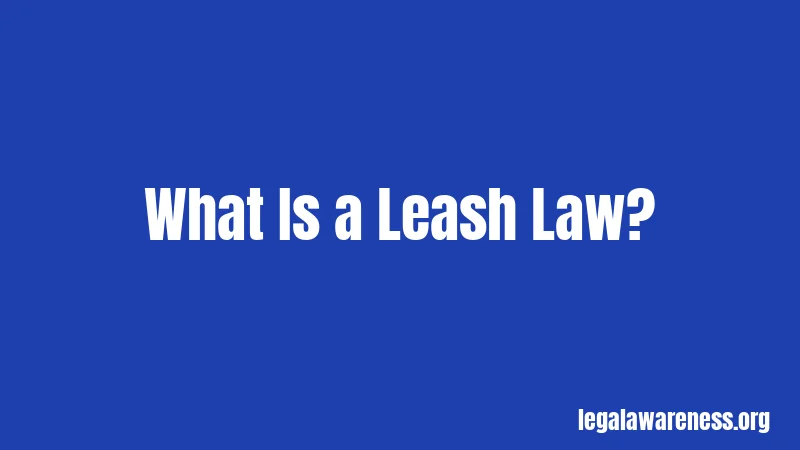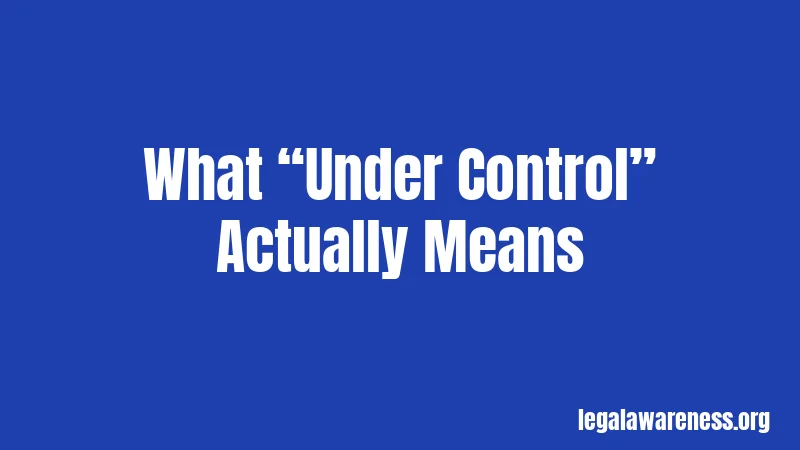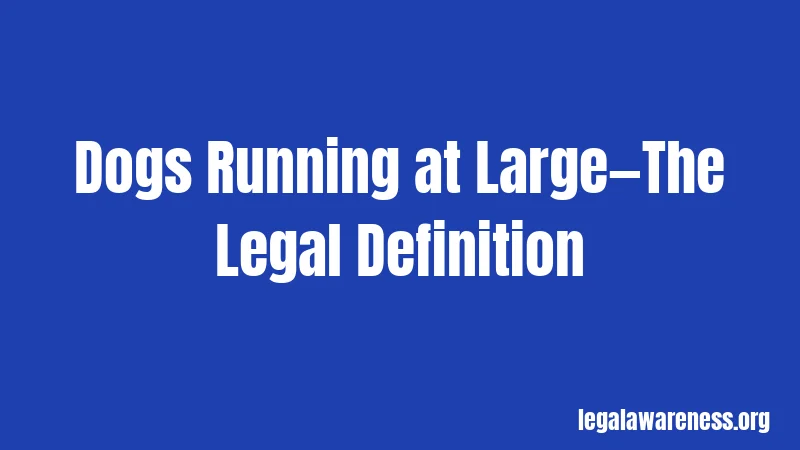Virginia Leash Laws in 2026: What Dog Owners Actually Need to Know
Most people have no idea that Virginia’s leash laws vary by location. Seriously. Your neighbor two towns over might have completely different rules. But here’s the thing—breaking these laws can get expensive fast.
Let me break down exactly what you need to know about keeping your dog legal in Virginia.
What Is a Leash Law?

A leash law is basically a rule that says your dog needs to be under control. Right? Pretty straightforward. That might mean a physical leash, a fenced yard, or keeping your dog inside.
Virginia doesn’t have one statewide leash law. Instead, each city, county, and town makes its own rules. This means what’s legal in Richmond might not be legal in a neighboring county. Sound complicated? Honestly, it’s actually easier once you understand the basics.
No Statewide Law—But Your Locality Has One
Here’s the important part: Virginia’s state law doesn’t require a leash. But almost every local area has adopted one.
Virginia Code § 3.2-6538 says dogs can’t “run at large.” Running at large means your dog is roaming or running off your property without your direct control. That’s the baseline rule everywhere in Virginia.
Check your local county or city ordinances. Most jurisdictions require one of two things. Your dog either stays on a leash when off your property, or your dog stays under your immediate voice command. Many places prefer the leash option because, honestly, most dogs don’t listen perfectly to voice commands.
What “Under Control” Actually Means

When you’re at home, you’re usually fine keeping your dog in the house, a fenced yard, or on a secured leash. The key is making sure your dog can’t just wander off your property.
When you take your dog off your property—like for a walk—the rules get stricter. Most Virginia localities require a physical leash. No exceptions. A 6-foot leash is standard, though some areas are more specific about length.
Wondering if this applies to you? Call your local animal control office. They’ll tell you exactly what your area requires. It takes five minutes and saves you potential fines.
Recent Changes in Virginia
Some Virginia cities tightened their rules recently. Hampton changed their law last year, actually. They used to allow dogs to be controlled by voice command in public spaces.
Not anymore. Now you must use a physical leash on public property. No voice control. Period. The city surveyed residents and three-quarters agreed with the change. It came down to safety—animal control responds to 500-600 dog bite calls every year in Richmond alone.
The reason? Even friendly dogs can react unpredictably. A leash gives you control. Voice commands don’t. That’s why the trend across Virginia is toward requiring physical leashes, even for well-trained dogs.
Dogs Running at Large—The Legal Definition

Okay, pause. Read this carefully. A dog is “running at large” when it’s off your property and not under your immediate control.
This applies whether your dog is friendly or not. Whether your dog has never bitten anyone. It doesn’t matter. If your dog isn’t physically restrained or in a fenced area, it’s technically running at large.
If your dog is roaming with other dogs (forming a pack), the penalties are worse. You could face a civil penalty of up to $100 per dog for pack violations.
Where the Rules Get Strict
Some specific areas have especially tight leash laws. Richmond requires a leash no matter where you are. City park or sidewalk—doesn’t matter. Leash required, period.
Hampton also has strict rules now. Dogs can’t be on beaches at all during peak season (April 15 to September 15). And tethering—permanently tying your dog to a pole or post—is completely illegal in Hampton.
This brings up an important point. Tethering is becoming illegal in more Virginia cities. Just because your dog is “restrained” doesn’t mean it’s legal. Check if your area allows tethering. Most likely, it doesn’t.
Penalties for Breaking Leash Laws
What happens if you break the leash law? It depends on your locality, but fines are common.
You might face a Class 4 misdemeanor charge. That could mean a fine up to $250 for the first violation. In some areas, it’s higher. Some localities issue summons citations, which means you go to court.
More importantly, if your unleashed dog injures someone, you’re liable for all damages. This means medical bills, lost wages, pain and suffering—all coming out of your pocket. Virginia law holds dog owners strictly liable for injuries caused by unleashed dogs.
Trust me, this works. Leash laws exist because they prevent accidents. One incident could cost you thousands.
Dangerous Dogs—This Is Where It Gets Serious
Now, here’s where things get serious. If your dog has bitten or attacked someone, it could be classified as a “dangerous dog.”
A dangerous dog is one that has bitten, attacked, or seriously injured a person or another animal. Once a dog gets this label, the rules multiply fast. Dangerous dogs must be registered on Virginia’s Dangerous Dog Registry.
The owner must maintain at least $100,000 in liability insurance. The dog must be kept in a secure enclosure. When off-property, the dog must wear a muzzle and stay on a leash under control of a responsible person.
This isn’t optional. Courts enforce these requirements strictly. If you don’t comply, you face additional penalties.
What Happens If Your Dog Attacks Someone
If your dog bites or attacks someone while running at large, you’re liable. Period. Virginia uses “strict liability” for dog bites. That means even if your dog has never bitten before, you’re still responsible.
The victim can sue you for medical expenses, lost wages, pain and suffering, and sometimes punitive damages. Courts don’t care if your dog is usually friendly. If it caused injury while off-leash, you pay.
Additionally, if your dog is classified as dangerous and attacks again, the penalties increase dramatically. You could face a Class 2 misdemeanor (if it injures/kills another pet) or a Class 1 misdemeanor (if it bites a person). Those mean fines up to $1,000 or jail time up to one year.
Vicious Dogs Are Different—And Worse
There’s a difference between dangerous and vicious. Vicious is much more serious.
A dog is classified as vicious if it has severely injured or killed someone, or if it killed or seriously injured multiple animals. Vicious dogs must be euthanized. No exceptions. Courts don’t have a choice here.
The owner of a vicious dog faces serious criminal penalties. We’re talking about potential felony charges, fines up to $2,500, and 1-5 years in prison.
Pretty straightforward—if a dog is declared vicious, it’s over. The dog is gone.
Special Circumstances and Exceptions
Some situations don’t require a leash. Service dogs working with their handlers are typically exempt from leash laws while actively assisting someone with a disability.
Police dogs performing their duties are also exempt. Dogs participating in lawful hunting or organized dog shows are exempt too.
Some Virginia parks have designated off-leash dog areas or “bark parks.” These are specifically marked and allow dogs to run freely. If your park has one, great—that’s your opportunity to let your dog play. Just respect the rules and boundaries.
How to Comply With Virginia Leash Laws
Here’s what you need to do. First, find out your specific local ordinances. Don’t assume. Different areas have different rules.
Go to municode.com and search your city or county. Or call your local animal control officer. They’ll tell you exactly what’s required in your area.
Get your dog licensed. Most Virginia localities require dogs four months or older to be licensed. That costs anywhere from $7 to $10 per year, depending on where you live. You usually need proof of rabies vaccination.
Use a proper leash and collar when off your property. A 6-foot leash is standard. Make sure the collar or harness fits correctly and won’t slip off. Cheap equipment isn’t worth the risk.
Keep identification on your dog at all times. A collar with an ID tag costs a few dollars and could be the difference between getting your dog back and losing it forever.
What to Do If Your Dog Bites Someone
If your dog bites or scratches a person, report it immediately. Seriously—don’t try to hide it. Virginia law requires you to report dog bites.
The person who was bitten will likely report it anyway. When they do, animal control will contact you. Your dog will be quarantined for 10 days as a rabies control measure.
Failing to comply with quarantine orders is a criminal offense. So report it first, cooperate with authorities, and you’ll avoid additional charges.
Keep medical records and contact information from the incident. If a lawsuit comes later, you’ll need documentation. Your homeowner’s insurance might cover damages, but you need to report the incident to your insurance company immediately.
Off-Leash Dog Parks—Your Safe Option
Want your dog to run free? Use an official dog park or designated off-leash area.
Many Virginia communities have created dog parks specifically for this purpose. Hampton has two. Bark parks are marked clearly and have specific hours. Your dog gets exercise, and you stay compliant with the law.
Check your city or county parks and recreation website for locations. Most are free or low-cost to use. It’s a win-win.
Liability and What It Really Costs
Here’s the real story that might surprise you. Even if your dog has never bitten before, Virginia law holds you liable for injuries if your dog is running at large.
A dog bite lawsuit can easily cost $20,000 to $50,000 or more in medical bills alone. If the injuries are severe—say, a child is bitten on the face—costs could be six figures.
Your homeowner’s insurance might cover some of this, but only if you report the incident and comply with policy requirements. If you’re found to have violated local leash laws, your insurance company might deny the claim entirely.
The math is simple. A $7 to $10 dog license and a $20 leash cost far less than being liable for a serious injury.
What If Animal Control Finds Your Dog Running at Large?
Animal control can impound your dog. You’ll face a fine to get it back, plus boarding costs while the dog was in custody.
If your dog becomes a repeat offender, the fines increase. You might also lose custody rights—the court can permanently remove your dog.
In serious cases, where a dog is declared dangerous, the animal could be euthanized. Your dog’s life literally depends on you following the leash law.
Frequently Asked Questions
Can I let my dog run loose in my own yard?
Yes, as long as your yard is fenced and secure. Your dog can’t escape or roam onto neighboring properties. If you have an unfenced yard, your dog needs to be on a leash or in a secure enclosure.
Is voice control good enough for off-property walks?
Not in most Virginia localities. Many areas now require a physical leash, even if your dog listens perfectly to voice commands. Check your specific locality. Hampton, for example, eliminated voice control as a legal option.
What if my dog escaped and ran at large?
You’re still legally responsible for any injuries or damage. Virginia law doesn’t care if it was an accident. If your unleashed dog caused harm, you can be held liable.
Do service dogs have to follow leash laws?
No. Service animals actively assisting someone with a disability are typically exempt. But if your service dog is just accompanying you as a pet, normal leash laws apply.
What does “dangerous dog” actually mean in Virginia?
A dog is classified as dangerous if it has bitten, attacked, or seriously injured a person or animal without provocation. The court makes this determination after investigation and hearing.
Can a dog be dangerous even if it has never bitten before?
No. A dog must actually have bitten or attacked someone to be classified as dangerous. However, you can still be liable for injuries caused by your unlicensed, unleashed dog even if it has no bite history.
What’s the difference between dangerous and vicious?
Dangerous dogs have strict regulations and must be registered. Vicious dogs must be euthanized. Vicious is a felony-level classification for very serious incidents only.
How do I find off-leash dog parks near me?
Search your city or county parks department website. Most have a section dedicated to dog parks and their rules. Call ahead to confirm hours and any membership requirements.
Final Thoughts
Virginia’s leash laws exist for a reason—public safety. Dogs that are properly controlled cause fewer accidents, fewer bites, and fewer injuries.
Here’s the bottom line. Know your local leash law. License your dog. Use a proper leash. Keep ID tags updated. It’s that simple.
You love your dog. The law is designed to protect your dog and everyone else in your community. Follow it, and you’ll avoid fines, lawsuits, and worst-case scenarios.
When in doubt, call your local animal control. They’re helpful, and it takes five minutes. Now you know the basics. Stay informed, stay safe, and keep your dog protected.
References
Virginia Code § 3.2-6538 – Dogs Running at Large
Virginia Code § 3.2-6540 – Dangerous Dogs; Investigation and Hearing
Virginia Code § 3.2-6539 – Ordinance Requiring Dogs to be Kept on Leash
Virginia Dangerous Dog Registry
Hampton, Virginia – Dog Leash Laws
Richmond Animal Care and Control – Leash Laws
Animal Legal & Historical Center – Virginia Dog Laws
Virginia Beach City Code § 5-531 – Keeping Dogs Under Restraint
